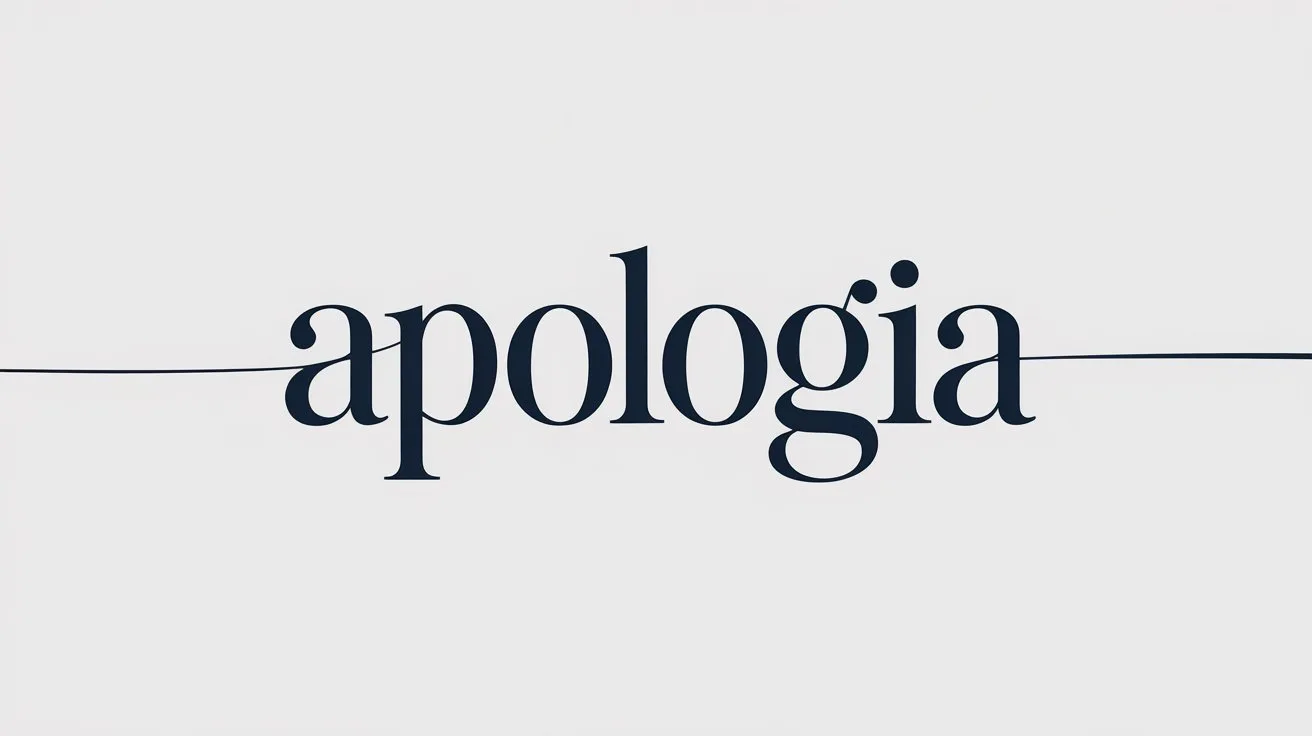The Greek word apologia (ἀπολογία) means a reasoned defense, a formal justification, or an answer for one’s beliefs or actions. It doesn’t imply being defensive or argumentative; it speaks of standing firm with clarity and conviction. The word is used repeatedly in the New Testament to describe how believers are to respond to accusations or questions about their faith, with truth and boldness.
The clearest and most instructive use of apologia comes from 1 Peter 3:15,
“But sanctify the Lord God in your hearts, and always be ready to give a defense (apologia) to everyone who asks you a reason for the hope that is in you, with meekness and fear.”
This verse is a command to be prepared, to stand ready with both courage and humility. It’s not about debating, it’s about declaring. We are called to explain why we have hope in Christ, not just express it.
Paul’s Apologia
The Apostle Paul used this word several times to describe his own defense of the gospel. In Acts 22:1, Paul begins his speech to the angry crowd in Jerusalem by saying,
“Brethren and fathers, hear my defense (apologia) before you now.”
He wasn’t defending himself to save face; he was defending the gospel, giving reasoned testimony of God’s grace and power. In Philippians 1:16-17, Paul writes from prison,
“knowing that I am appointed for the defense (apologia) of the gospel.”
Paul understood that his mission wasn’t just to preach, but to give clear, bold answers—answers rooted in Scripture and personal transformation. This same heart of bold proclamation is seen again in 2 Timothy 4:16, where Paul speaks of his trial,
“At my first defense (apologia) no one stood with me, but all forsook me… But the Lord stood with me and strengthened me…”
Even when alone, he stood firm, because God was with him.
The Character of Our Defense
It’s important to note the posture of this defense. 1 Peter 3:15 doesn’t just say to give an answer; it says to do it with meekness and fear. This isn’t fear of man; it’s fear of God, and meekness before others. Humility and reverence guard us from pride and argument.
Colossians 4:6 echoes this,
“Let your speech always be with grace, seasoned with salt, that you may know how you ought to answer each one.”
Our defense must be rooted in grace and seasoned with truth, not bitterness, not strife.
Titus 1:9 also instructs elders to be able to “exhort and convict those who contradict,” showing that our defense must be biblically sound and Spirit-led.
Why Apologia Matters Today
In a culture that questions truth and ridicules righteousness, believers must stand with both conviction and compassion. Apologia is not about intellectual debates; it’s about standing firm in the face of pressure, being able to articulate why we believe, what we believe, and Who we believe in.
Jude 3 urges us to
“contend earnestly for the faith which was once for all delivered to the saints.”
This isn’t optional. It’s a calling. And it requires study, prayer, and a heart anchored in the Word.
My Final Thoughts
Apologia isn’t just a theological term; it’s a lifestyle of readiness. As followers of Christ, we are called to be prepared, steady, and full of truth. We don’t argue to win minds; we speak to reach hearts. Our defense is not in eloquence or strategy, but in the unshakable truth of the gospel and the power of the Holy Spirit.
So sanctify the Lord in your heart, and be ready—not just to give answers, but to live a life that demands one.





 Get the book that teaches you how to evangelize and disarm doctrines from every single major cult group today.
Get the book that teaches you how to evangelize and disarm doctrines from every single major cult group today.